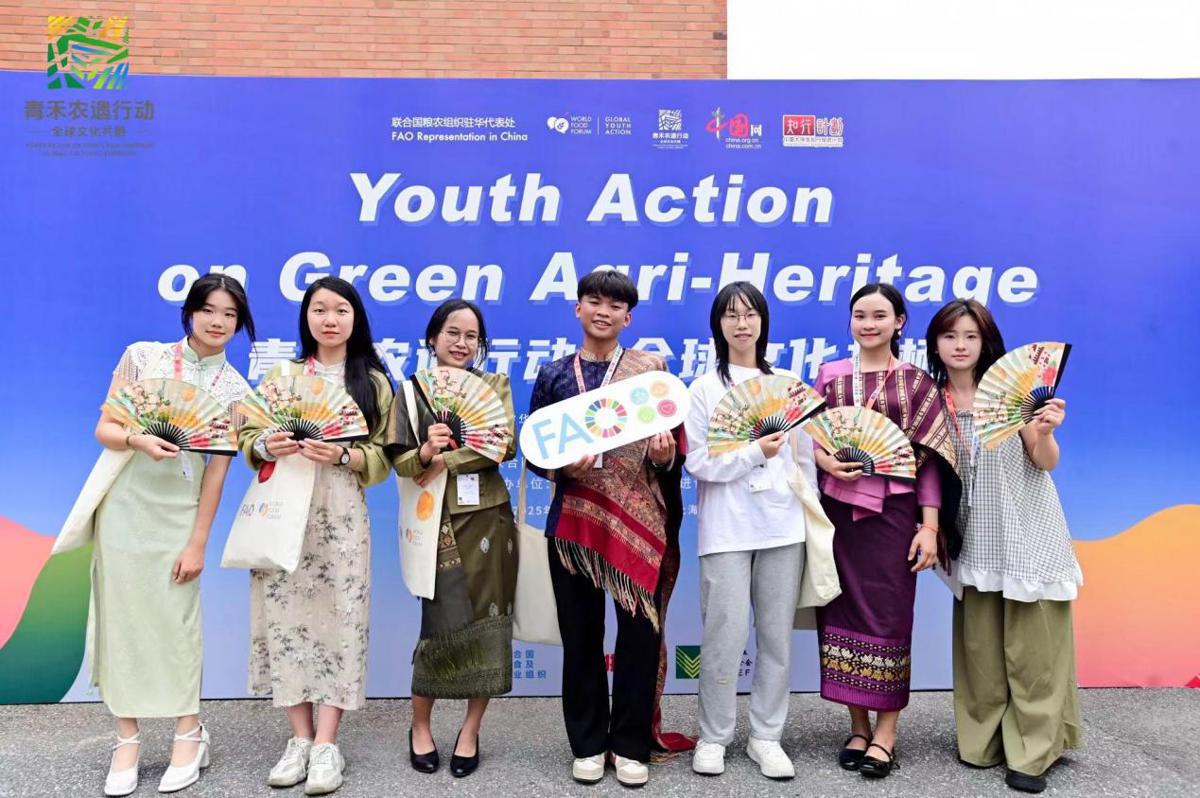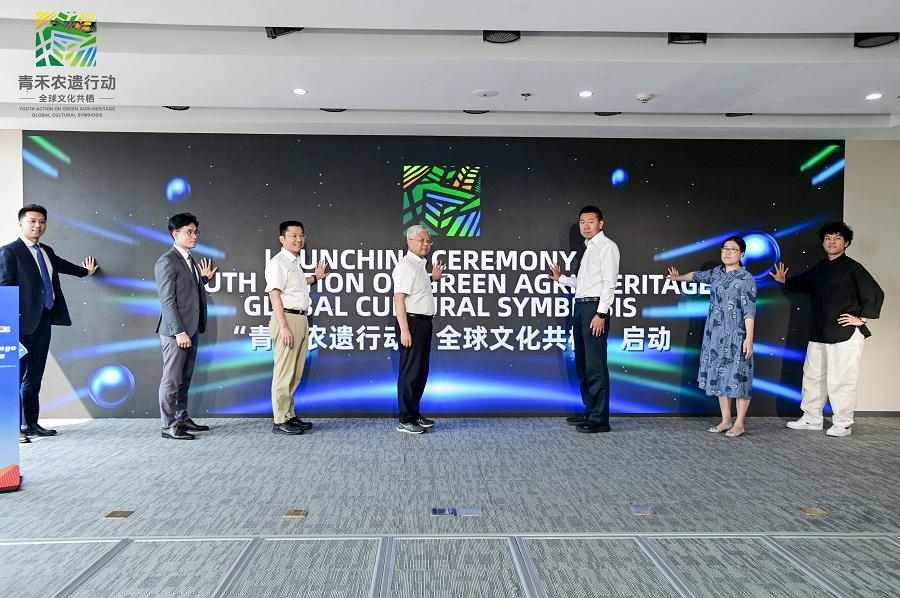Shanghai preserves agri-heritage through global youth program

Young representatives from 13 countries gather in Shanghai to launch a program focused on developing sustainable approaches to preserving agricultural heritage systems. [Photo provided to chinadaily.com.cn]
Young representatives from 13 countries gathered in Shanghai to launch a program focused on developing sustainable approaches to preserving agricultural heritage systems.
The three-day event, which commenced on Monday under the theme "Youth action on green agri-heritage", combines China's agricultural cultural heritage with global youth innovation through field visits, roundtable dialogues and co-creation camps.
As the country with the largest number of Globally Important Agricultural Heritage Systems (GIAHS), China has always contributed to the world its oriental wisdom, and this program is an exploration of international communication to help civilizational dialogue, according to Gao Anming, editor-in-chief of China International Communications Group.
In his video address, Gao emphasized the contemporary relevance of agricultural heritage. "Agricultural heritage is not merely a museum specimen but a fountain of wisdom for humanity to address current challenges," he said."Each cross-border dialogue contributes to building a shared future for humanity."
Zhou Lijin, FAO China program officer, underscored youth involvement as central to heritage preservation. "Young people are not just inheritors and beneficiaries but drivers of agricultural heritage," she said. "The World Food Forum China provides an essential platform for young people to channel their enthusiasm and creativity into agricultural innovation."
Zeng Zixin, program officer at the center of international cooperation service, Ministry of Agriculture and Rural Affairs, highlighted China's commitment to the GIAHS initiative since its launch in 2002. "China's efforts will transform agricultural cultural heritage into valuable resources for rural revitalization while contributing to global food security and the UN's 2030 Sustainable Development Goals."
Min Qingwei, an agricultural heritage expert from the Chinese Academy of Sciences, identified three key aspects of the initiative: its international scope, youth focus, and broad appeal beyond agriculture. "Agricultural heritage can only maintain its vitality if young people participate and understand it," Min said.

The event combines China's agricultural cultural heritage with global youth innovation through field visits, roundtable dialogues and co-creation camps. [Photo provided to chinadaily.com.cn]
Japanese director Takeuchi Ryo, leading the program participants in documentary filming about agricultural practices, stressed the importance of finding common ground in storytelling. "Each country has different needs and views on agriculture. We need to find points of resonance that connect with international audiences," he said.
Young participants shared their perspectives and experiences. Bae Hye-eun, a South Korean cultural industry doctor from Peking University, found new dimensions in the city. "Despite visiting Shanghai more than ten times, this was my first exposure to its fishery and agricultural systems," she said. "We're discovering new values and future possibilities in these traditional practices."
For Nigora Davronbekova, a youth representative from Tajikistan, the initiative resonates with her cultural identity. "In Tajikistan, agriculture isn't just part of the economy; it's our identity," she explained. "This activity has demonstrated how traditional agricultural practices can harmonize with modern technology to create more sustainable systems."
Sisavanh Senbounxou, a second-year student from Laos, shared his country's sustainable farming priorities, and expressed enthusiasm about the innovative approaches he encountered during the program. "These innovations could inspire similar developments in Laos. As future leaders, we bear the responsibility of protecting and advancing our agricultural heritage for generations to come," he said.
The initiative also included a visit to the Laos Economic and Trade Cooperation Expo in Shanghai's Yangpu district, showcasing agricultural products and green agriculture developments.
The initiative, co-organized by the FAO Representation in China, World Food Forum (China), and China Internet Information Center, drew approximately 80 participants, including government officials, international organization representatives, embassy officials, expert mentors, and youth delegates to its opening ceremony.


